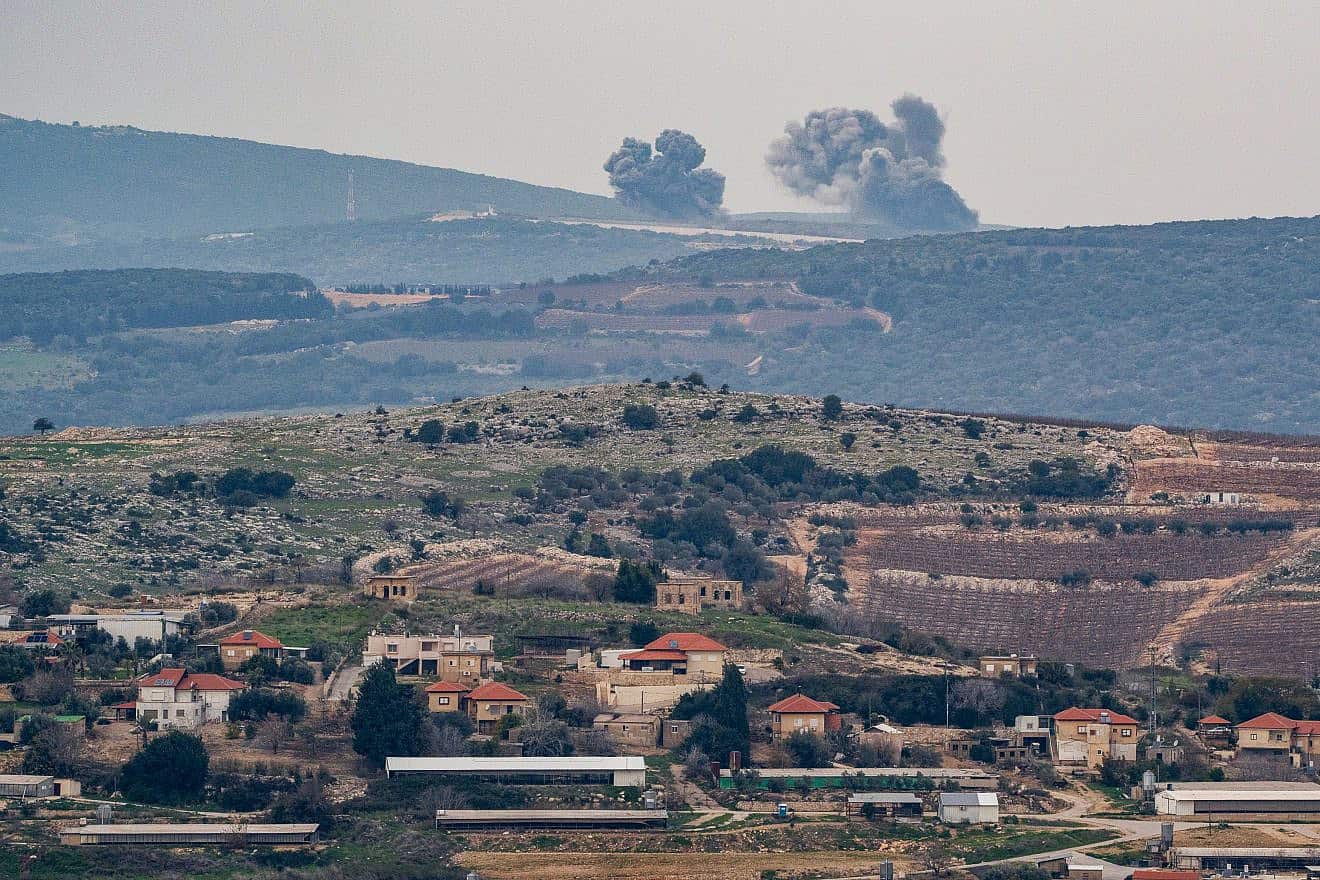In his Jan. 3, 2024 speech, Hezbollah Secretary-General Hassan Nasrallah hailed “a historic opportunity” to help Lebanon regain control of disputed borderlands “after this phase [of fighting between Israel and Hezbollah] ends and after the aggression on Gaza.”
The same day, Israel’s Defense Minister Yoav Gallant said his government “prefers a diplomatic path over a military one,” but warned, “We are close to the point of the hourglass turning over.”
What are the odds that an agreement (a historic one) could be reached between Israel and Lebanon, brokered by the United States?
Since the beginning of the Oct. 7, 2023, war between Hamas and Israel, the U.S. administration has signaled to its Israeli ally that the war between Hamas and Israel should not develop into a regional conflict involving an open war between Israel and Hezbollah.
Encouraged by the maritime border agreement brokered by U.S. envoy Amos Hochstein in late October 2022, the U.S. administration has tried since the beginning of this war to find a diplomatic solution that would prevent such a confrontation between Israel and Hezbollah. However, this mission is becoming more difficult by the day.
The two sides have entrenched themselves in opposing positions which seem almost impossible to bridge:
- Israel wants Hezbollah to withdraw several kilometers from the border and adhere to U.N. Security Council Resolution 1701, which calls for the terror group to withdraw beyond the Litani River (almost 40 kilometers from the Israeli border), to allow the 60,000 evacuees from border towns to return safely to their homes.
- As a first step, Hezbollah demands a total ceasefire on the Gaza front as a prerequisite to settling the alleged 13 border infringements by Israel since its withdrawal from Lebanon in 2000. Hezbollah also insists on the return of seven Lebanese villages abandoned by their inhabitants and invaded by Israel in 1948. Finally, Hezbollah demands Israel recognize the border drawn by the British and French mandates in 1923, the only internationally recognized border between Israel and Lebanon according to Hezbollah.
Facing these formidable hurdles, Hochstein has engaged in shuttle diplomacy to defuse the volatile situation, prioritizing convincing the Lebanese government to cooperate, a difficult task as the country has only a caretaker prime minister and government. No elected president has served in Lebanon since October 2022.
According to the Lebanese constitution, the president is the only authority who can ratify any agreement with a foreign entity, not to mention the arch-enemy Israel. Moreover, caretaker Prime Minister Najib Mikati has aligned himself with the positions taken by Hezbollah, namely that alleviating the situation in south Lebanon without taking into consideration what’s happening in Gaza would be “illogical.”
According to the Lebanese press, Hochstein proposed to his Lebanese counterparts a cease-fire on the northern front, following which Hezbollah would withdraw its forces eight kilometers from the border and the Lebanese army would deploy 10,000 soldiers. This would be the prelude to negotiating the land border between Israel and Lebanon.
The Hochstein proposal was entirely rejected by Hezbollah, who claimed that Israel should first cease fire in Gaza. Furthermore, seeing itself as the defender of Lebanon, Hezbollah claims that UNIFIL should be deployed on the Israeli side of the border and not on Lebanese soil.
Moreover, notwithstanding Hezbollah and the Lebanese government’s positions, it is evident that the whole process cannot be jump-started until a ceasefire is reached on the Gaza front. Such a ceasefire would allow Hezbollah to stop its attacks on Israel and begin the process of negotiations on the rectifications of the Lebanese-Israeli border and possibly open the way for the withdrawal of Hezbollah from the border with Israel.
On the Gaza front
However, the likelihood of a cease-fire on the Gaza front is slim. Hamas chiefs have vowed to continue fighting as long as it takes, while the Israeli premier has declared that the war will continue until Israel succeeds in eradicating the military and political presence of Hamas in the Gaza Strip. Netanyahu and his defense minister are firm believers that only military pressure will ultimately force Hamas to stop fighting and reach a deal on the remaining 136 hostages being held by the terrorist group.
Therefore, the chance of any lull on the northern front, or of a diplomatic process yielding fruit, is very low. The attrition war waged by Hezbollah will continue unless Israel decides to change its parameters, which would dramatically alter the situation on the northern front.
Originally published by The Jerusalem Center for Public Affairs.


























